
OR
Directly elected executive system the only solution
Published On: July 18, 2016 06:00 AM NPT By: Republica | @RepublicaNepal
While his mother party UCPN (Maoist)—now Maoist Center—abandoned the agenda of directly elected executive head, the chief of Naya Shakti Nepal, Baburam Bhattarai, believes only directly elected executive can guarantee stability in the country. Subhash Ghimire and Mahabir Paudyal met with the former prime minister to get his views on recent
exercise to form new government under Maoist leader Pushpa Kamal Dahal.
How have you seen the new Congress-Maoist effort at government change?
The country got a constitution from an elected Constituent Assembly after seven decades of democratic exercise. People had thought that it would lead to stability and pave way for economic development and prosperity. The recent political development has shattered this expectation. We are back to the old practice of changing government every six months. This is against the interest of the country and the aspirations of the people. People want stability and development. There is no use lamenting over it now. Parties made a big mistake by giving continuity to a system that promotes instability.
Are you suggesting that abandoning the idea of a directly elected president was a mistake?
It was a mistake. Personally, I have always stood in favor of directly elected executive head. I believe that in a country like Nepal lagging in socio-economic indicators and which is a home to diverse ethnic communities, we must change the electoral system as well as the government system. The legislature parliament must be made fully proportional as this is a body that makes national laws. It requires participation of as many ethnic communities as possible. Fully proportional system can ensure this. And we need directly elected executive head, just like in the US. This has two advantages. First, fully proportional parliament can address the aspirations of all people. Directly elected executive can then ensure government stability. But we got neither. Now we are facing the consequences.
You were the chairperson of the Constituent Assembly’s Constitutional Political Dialogue and Consensus Committee. Why couldn’t you push the agenda of directly elected president from that platform?
We could not include this system in the new constitution as Nepali Congress was strongly opposed to it. It did not budge from traditional parliamentary system. CPN-UML was for directly elected prime minister during the last CA election. But it also gave up this stand. Later, UCPN (Maoist) also abandoned this agenda. So it could not happen. But I have made these two major issues the main agenda of Naya Shakti Nepal.
Why do you think UML and Maoists backtracked from their earlier position on directly-elected president?
Because of low level of political awareness, I would say. We should have learned from past mistakes. We had 22 prime ministers in past 26 years. This is unreasonably high. The only way to cure this malady would be by opting for directly elected executive. But political parties and their leaders looked at the issue from the perspective of whether it would benefit them personally.
Some leaders believe directly elected executive system could lead to dictatorial rule.
This argument undermines democracy and people’s power to choose their rulers. There are laws to check and balance the powers and activities of the directly elected president. A person who abuses the power acquired through people’s vote will be punished by the people in next election. It is wrong to doubt the efficacy of the system simply for the fear that A or B could become dictatorial if he or she becomes the president. In a democracy, you must trust the people.
Some say recent efforts at change of government could jeopardize the task of implementation of the new constitution. What challenges do you foresee?
This is where the danger lies. We need to be wary of the broader tendency. If we keep chopping and changing governments, it will affect the task of amending the constitution to take Madheshi forces on board. This in turn could lead to a new political and constitutional crisis. The big parties should first stand together in order to take Madheshi forces into confidence and then amend the constitution so that local, provincial and federal elections can be held within 2017, as mandated by the constitution.
The political parties have their tasks cut out. They need to reach out to the agitating Madheshi, Tharu and Janajati communities to create minimum consensus. Having done so, the parties should work to revise provincial boundaries based on reports of State Restructuring Committee of the first CA and the State Restructuring Commission formed under Interim Constitution. If we fail in this, a large majority will not own up this constitution. Second, they need to hasten the process of restructuring local units and revising federal boundaries. Without this, elections will be impossible. Experts have said that all three elections can be held simultaneously. This is the course we must take.
How will Naya Shakti push these agendas? It does not have representation in the parliament.
We can play the role of a facilitator to push these agendas. There are parliamentarians who support our issues, both within Congress and UML. They will raise these issues.
Our focus is resolving the issues raised by agitating parties and holding the three elections at the earliest. If need be, we will exert pressure by mobilizing people. Our prime goal is development and prosperity, for which political stability is a must. Unless there is political stability followed by policy stability we will not be able to create conducive climate for foreign investment. After that we need appropriate development policy and foreign policy built on internal unity.
Apart from this, we also need to take as much benefit as possible from the growing economies of India and China. The traditional notion that we are a yam between two boulders needs to change. We need to develop ourselves as a bridge between two countries. Besides, we also need to develop our institutions. There are no institutional processes in Nepal. Rather everything is done on individual whims. Often our big projects are run on whims of commission agents. Institutional mismanagement and rampant corruption have marred national pride projects. Unless we remove these maladies, there will be no development and prosperity.
Haven’t national pride projects also suffered because of external interference?
There are both internal and external dynamics to it. There are vested interest groups in and out of the country. There is huge exchange of commission in allowing projects. Government instability makes the matters worse. Government A allows a contract to a certain company in exchange of commission. The ministers of government B come and scrap that contract or demand even more commission to take that project forward. There will continue to be such anomalies unless we empower and strengthen state institutions.
What do you make of the charge that India likes to intervene in Nepali politics more than it would like to see a developed Nepal?
First of all, we need to have a clear understanding of international politics. A nation state first secures its national and diplomatic interests and maintains relations with other nations based on that spirit. As a country lying between the two Asian giants they would also like to keep Nepal under their influence. If we were a large country, we would perhaps do the same.
We need to understand the basic rules of international relations and clearly define our national interests and conduct our relations with neighboring and other countries accordingly.
As for India, we have had an unequal relation with it since 1816, when Nepal and East India Company agreed to the Sugauli Treaty. There is a politico-economic dynamic to this relation. We have always been economically poor, whereas India has always been stronger both politically and economically. The relation between a strong and a weak state is bound to be unequal. Thus if we are to correct this unequal relation back to an even keel, we must first establish internal unity and focus on economic development.
We also need to make our fully-dependent economy interdependent. Then we will be able to assert our sovereignty and national independence. So long we have to be economically dependent on India we will never be equal to it. This is the reason Naya Shakti has tried to redefine Nepal’s relations with India and China. For us Nepal is no longer a yam between the two giants. Nepal is rather a bridge between two great economies.
You say only economic independence can stop foreign meddling. Others blame foreign meddling for our backwardness. Isn’t this a kind of a vicious cycle?
This is why we must break this vicious cycle through strong internal unity. No one will do that for us. Others will want to maintain that vicious cycle. We need to establish internal unity among different ethnicities before anything else. This will be a precondition to credibly fight foreign intervention.
Having done so, we need to define our development policy so as to extract maximum benefits from large international markets in India and China. We need to promote the industries that support or contribute to value chains of Indian and Chinese businesses. If we can do so, Nepal’s development will also benefit India and China. In that case, they will not need to meddle in political affairs of Nepal.
There have been calls to revisit the 1950 treaty with India. How should it be revised, if at all?
The 1950 treaty is an outcome of special historical circumstances. India had recently become independent of British rule and Nepal had also rid itself of the Ranarchy. The treaty was signed in this context. In these 70 years there have been many changes, both in India and Nepal. This treaty needs to be revised in the changed context and we need to conduct our relation with India based on the new political realities.
I had proposed the formation of Eminent Persons Groups during my visit to India as the prime minister. I am happy to see my proposal being implemented. The Eminent Person Groups (EPGs) of two countries should objectively study the provisions of the treaty and recommend how relation between Nepal and India can be improved and taken to a new level.
You May Like This
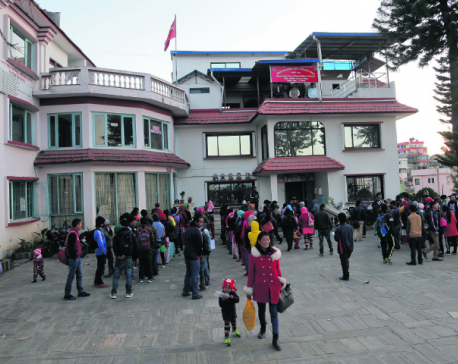
Maoist Center to lobby for directly elected executive Prez
KATHMANDU, July 22: Two years after the promulgation of the new constitution, the ruling CPN (Maoist Center) has decided to... Read More...
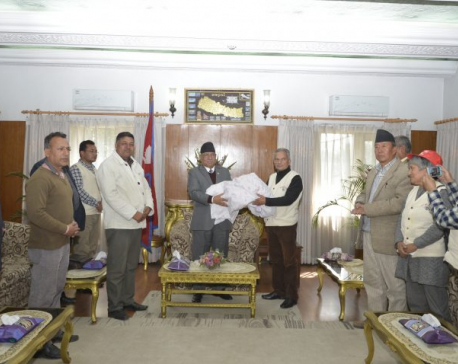
Directly elected executive is our agenda: PM
KATHMANDU, March 13: Prime Minister Pushpa Kamal Dahal has said the directly elected executive system of state governance was his... Read More...
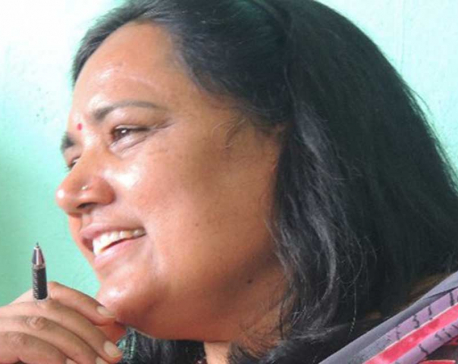
Proportional system is only screening tool for women Participation
KATHMANDU,Nov 5: The women activist and the proportional nominee from CPN (UML) Sharmila Karki have stressed that proportional system is... Read More...





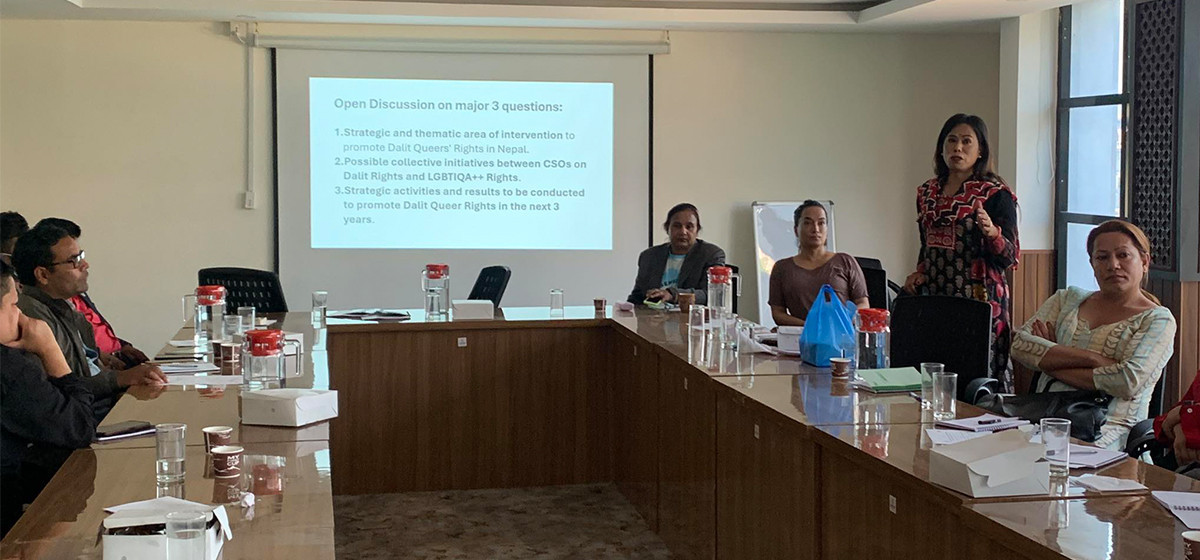


Just In
- 80 civil servants left in the lurch as MoFAGA places them in reserve pool
- Weather Alert: Storm likely in Lumbini and Sudurpaschim
- NOC investing Rs 3 billion to construct fuel storage plants of over 9,000 kl capacities in Bhairahawa
- Reflecting on a festive journey filled with memories and growth
- Dalit sexual and gender minorities lack representation within their own communities and groups
- Nagdhunga-Sisnekhola tunnel breakthrough: Beginning of a new era in Nepal’s development endeavors
- Altitude sickness deaths increasing in Mustang
- Weather forecast bulletin to cover predictions for a week






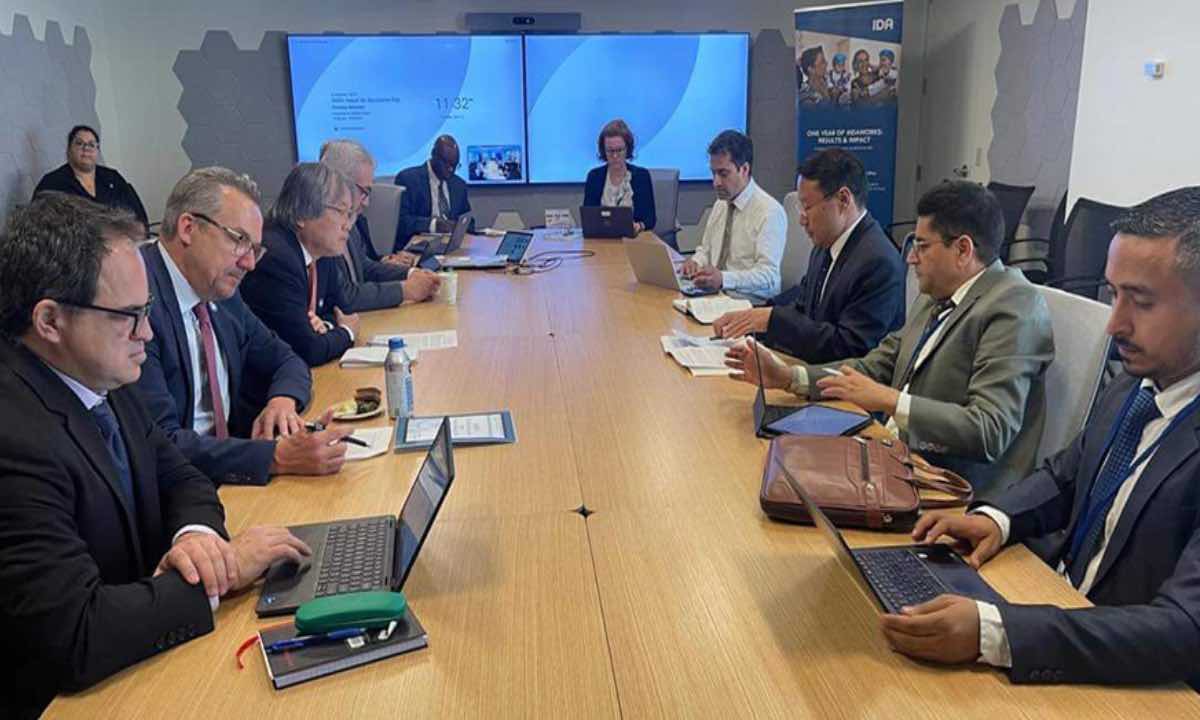
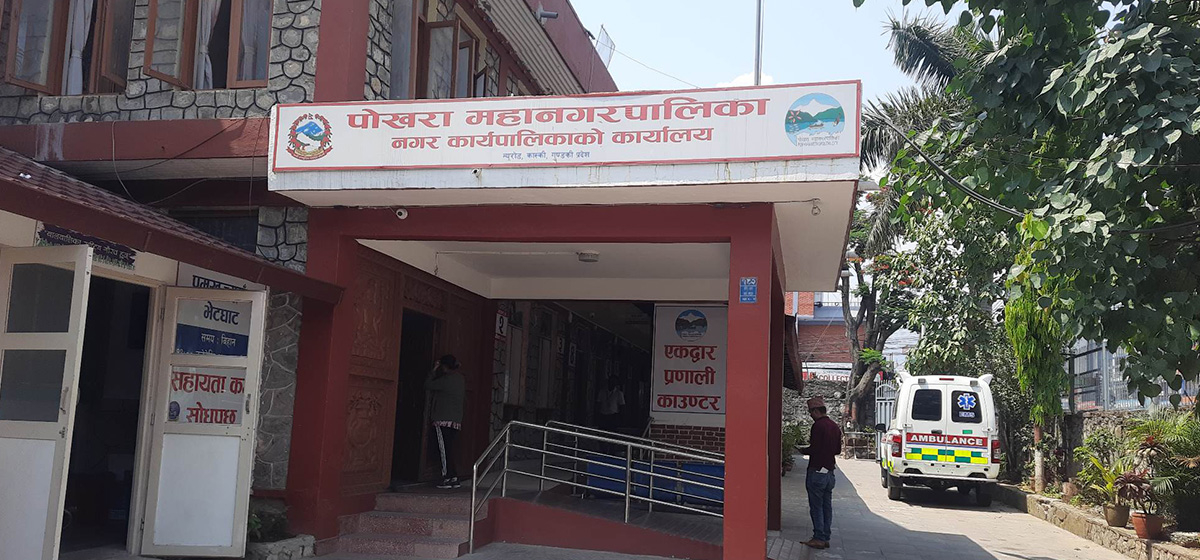
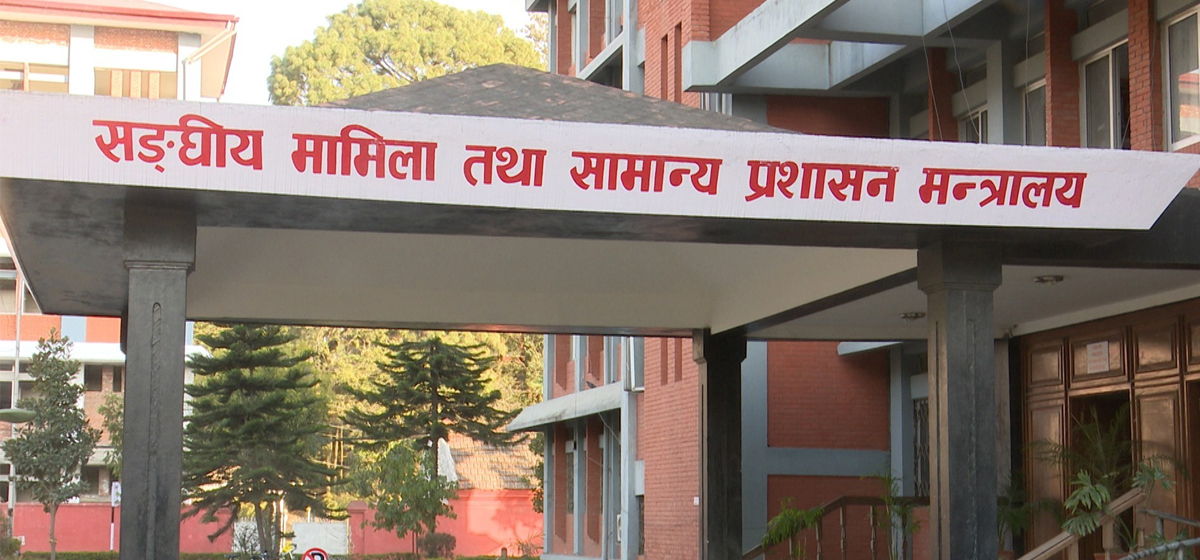


Leave A Comment